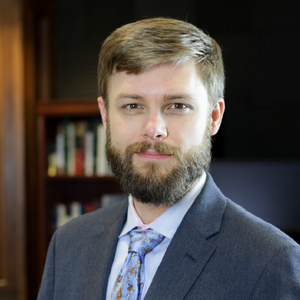Law & Principles
Trent England | February 26, 2015
National Popular Vote stopped in Oklahoma House
Trent England
Yesterday, an attempt to advance the National Popular Vote (NPV) Interstate Compact in the Oklahoma House of Representatives was withdrawn. The issue is unlikely to return in the current legislative session. So far, 10 states and the District of Columbia have enacted NPV legislation.
NPV would have states give away their electoral votes to the winner of the nationwide popular vote, effecting a radical transformation in presidential elections and national politics.
The proposal is supported by a well-funded, California-based lobbying group also called National Popular Vote.
The U.S. Constitution establishes a state-by-state process for presidential elections, known as the Electoral College. It is based on the same math as Congress: each state has the number of electoral votes as it has seats in the House and Senate (Oklahoma has 5 House members, every state has 2 senators, so Oklahoma has 7 electoral votes). The system respects the role of states in a compound republic. It keeps election administration at the state level, and contains election disputes within individual states. And it has stood the test of time.
NPV lobbyists and supporters advance two primary arguments. One, surely calibrated to Oklahoma’s legislative balance, is that the measure would help Republicans. The other is that Oklahomans actually favor NPV’s plan.
NPV for the GOP?
This partisan argument deserves to be dismissed out of hand. The Republican Party’s national platform explicitly condemns NPV and the Republican National Committee unanimously voted against the idea. On the other hand, the states that have adopted NPV are dominated by Democrats. In most cases, NPV legislation passed with only Democrats in support and with all Republicans and some Democrats in opposition.
Every known donor to NPV is also a known supporter of the political left, including the group’s founder, John Koza, who gave $25,000 to now-disgraced Oregon Gov. John Kitzhaber. NPV’s reported largest donor, Tom Golisano, contributed $1 million to the Democratic National Committee in 2008.
Public support for NPV?
NPV routinely touts public opinion polls showing support for scrapping the Electoral College. There is no reason to think the polls are illegitimate (though they are paid for and the data controlled by NPV). Yet there is good reason for legislators to question whether the polls are as meaningful as NPV lobbyists claim.
The Electoral College is hardly a topic of interest for most Americans. It is not a hot-button issue, and hardly ever the focus of news programs or even political talk programs (except MiddleGround Radio, of course). NPV might as well poll people about opinions on trigonometry or genetics. The responses to such polls say nothing about how certain people are, whether they are likely to change their minds, or if they really care one way or the other.
Whatever the opinion polls say, people who care about this issue appear to fall out on the side of preserving the Electoral College. Social media chatter and scuttlebutt from within the Oklahoma State Capitol suggests anti-NPV voices were far more numerous and louder than those calling for the direct election scheme.
Turnout
One final point deserves mention. Many Oklahoma officials are concerned, and rightly so, about consistent low voter turnout. Some wondered if NPV might be a way to draw more voters to the polls. This and some other tactics offered to drive up voter turnout in Oklahoma are misguided for two reasons.
First, a glance at the numbers from the 2012 election shows that states can achieve high turnout without being a presidential battleground. The Christian Science Monitor profiled the six states with the highest turnout in 2012 and only one was a swing state. And while NPV would render each vote mathematically equal, it would make the geographic regions where those voters are most densely packed together the most valuable campaign terrain. Political organizing is easier where populations are denser.
Second, efforts to increase voter turnout by tweaking election rules are generally misguided. Do we want a state and a nation where people will only vote if the process is mindlessly easy? The real solution to low voter turnout is improved civics education and more open government. The goal should be a high turnout of voters who are informed, engaged, and even passionate about their role as citizens in a self-governing society.

Trent England
David and Ann Brown Distinguished Fellow
Trent England is the David and Ann Brown Distinguished Fellow at the Oklahoma Council of Public Affairs, where he previously served as executive vice president. He is also the founder and executive director of Save Our States, which educates Americans about the importance of the Electoral College. England is a producer of the feature-length documentary “Safeguard: An Electoral College Story.” He has appeared three times on Fox & Friends and is a frequent guest on media programs from coast to coast. He is the author of Why We Must Defend the Electoral College and a contributor to The Heritage Guide to the Constitution and One Nation Under Arrest: How Crazy Laws, Rogue Prosecutors, and Activist Judges Threaten Your Liberty. His writing has also appeared in the Wall Street Journal, USA Today, Washington Times, Hillsdale College's Imprimis speech digest, and other publications. Trent formerly hosted morning drive-time radio in Oklahoma City and has filled for various radio hosts including Ben Shapiro. A former legal policy analyst at The Heritage Foundation, he holds a law degree from The George Mason University School of Law and a bachelor of arts in government from Claremont McKenna College.